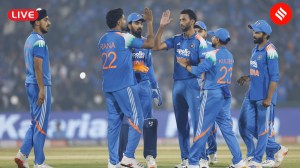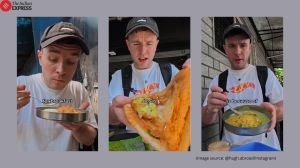What’s in WTO for us?
During the 18th century imperialism had a physical form. Countries which had military power colonised other countries and exploited their re...

During the 18th century imperialism had a physical form. Countries which had military power colonised other countries and exploited their resources. Today developed countries exercise control over poorer ones in a more subtle way. International financial institutions act as tools in the overall gameplan. The situation is, however, fast changing.
If the WTO is to be true in its objective of opening and liberalising international trade with free market access and without domestic and export subsidy, India would stand to gain. We have to keep in mind that the WTO is about negotiations in international trade. It is not a unilateral charter of demands, it is not our wish list. In any trade negotiations we have to proceed from the present stage keeping in mind our long-term objectives. To accomplish our goals we should enter into strategic alliance with developing countries with similar concerns. Our emphasis should be on translating the spirit of the Doha declaration in order to protect the interests of these countries.
We have to protect our agriculture, retail trade and small-scale sector from the onslaught of international manufacturers. With growing food production and burgeoning food stocks in India, if we are forced to remove tariff barriers in the agriculture sector, it could create problems. Our negotiators should insist on a minimum import quota based on GDP as prescribed under the Agreement on Agriculture earlier.
The true benefit of the WTO will be achieved in the services sector. We have to push for the opening up of the services sector under Mode 3 and Mode 4 —that is, there should be free mobility of manpower across countries. There should be complete reciprocity with developed nations in areas such as accountancy, health services, legal services, tourism and travel services. Mutual recognition agreements should be put in place so that our professionals get recognition and opportunities abroad. In addition, India should negotiate to place agriculture workers on the Mode 4 list.
The basic problem with the WTO is that it is talking of liberalising international trade through reduction in tariff and non-tariff barriers without emphasising on reduction in trade distorting subsidies by developed countries.
Another major concern before the WTO is the misuse of TRIPS, or intellectual property rights. There are several cases where patent rights have been given to firms over existing traditional knowledge by the US Patent and Trademark office. This problem is exacerbated by the fact that many developing nations, including India, have not yet managed to document their traditional knowledge.
In the area of public health, we should insist on major diseases being brought within the ambit of compulsory licensing. The US, thankfully, has dropped its demand that disease coverage be limited to HIV/AIDS, TB and malaria. This expansion is important from the point of view of India’s health needs as well as the development of our pharmaceutical sector and its exports to other developing countries.
Recent attempts by developed countries to push additional agenda items called Singapore issues — such as a multilateral agreement on investment, competition policy, transparency in government procurement procedures, industrial tariff, trade and environment, and labour standards — too should be resisted.
The notion that India stands to lose under the WTO regime stems from an under-estimation of our abilities. We always talk of our glorious past; this is an opportune time to realise it. India today is not what it was some twenty, twenty-five years back — a weak nation at the mercy of superpowers, ruled by a diffident leadership. We should sit together, apply our minds, identify our strengths and weaknesses and negotiate accordingly. The WTO can be a catalyst in the process of reverse imperialism.
(The writer is a member of the BJP’s central economic cell)
- 01
- 02
- 03
- 04
- 05






























